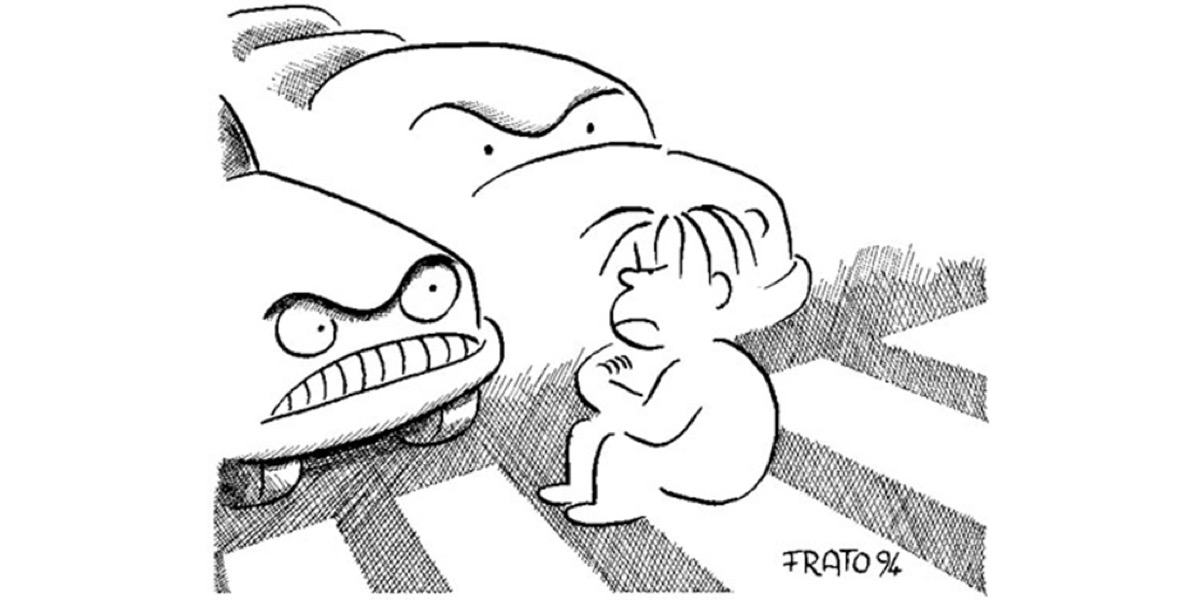The moral fines in the city of children
Last September, in Valencia, traffic fines grew exponentially. This has been happening for three years: September comes and there’s a spike in the number of traffic fines. Nobody complains, and the people who have been fined do not attribute it to a municipal desire to collect more money. Quite the opposite: most of the offenders accept the fine with a complacent smile. The reason? We’re talking about ‘moral’ fines.
Each year, thousands of students in this Mediterranean city leave their classes for a little over an hour and go into the street to show people what kind of city they want. They hand out symbolic fines to punish bad behaviour by drivers.
This initiative has been carried out for the past six years as part of European Mobility Week. The aim is to point out violations such as blocking zebra crossings or incorrect parking. It’s a way of raising awareness in both the drivers who receive the fines and in the students who impose them. The idea is to raise awareness about civic values, become more familiar with driver education, and understand it’s everyone’s responsibility to get involved.

Tonucci’s moral fines
The idea comes from the Italian pedagogue Francesco Tonucci. In his book When Kids Say Enough is Enough!, he states that “the biggest problems for kids in cities is that they’re never alone with each other without adults.” He misses his own childhood, when children could play in the street without any problems or supervision, and warns that this practice is being lost because of two basic factors: danger and traffic. Tonucci claims that the first reason, at least in the European context, is more a product of the news media than real. With regard to the second, traffic, he makes a more exhaustive analysis.
“We’ve destroyed our cities and it will be difficult for them to recover without something creative,” he said in an interview with El País in 2003. Tonucci is from Rome, a city where automobile traffic takes preference over pedestrians, and maybe that’s why for years he has been warning about the negative effects of this on childhood. “It is intolerable that a child can’t cross the street because the cars don’t stop at a zebra crossing. This means that the rights of the cars are more important than those of the children.”
These reflections resulted in the creation at the beginning of this century of an experiment he called The City of Children. The aim is for children to go to school on their own, and the way to do it is that along the way they hand out moral fines to the cars that ignore the traffic norms.
The city of children has been implanted in different cities in Italy, Argentina and Spain. Almost 20 years after the first one, the results have not been revolutionary, maybe because the system has only been adopted on a symbolic level. Nevertheless, at least on a theoretical level, Tonnuci’s ideas are very exciting. They make one think that it’s possible to have another kind of city. And each September, thousands of children are fighting achieve it.